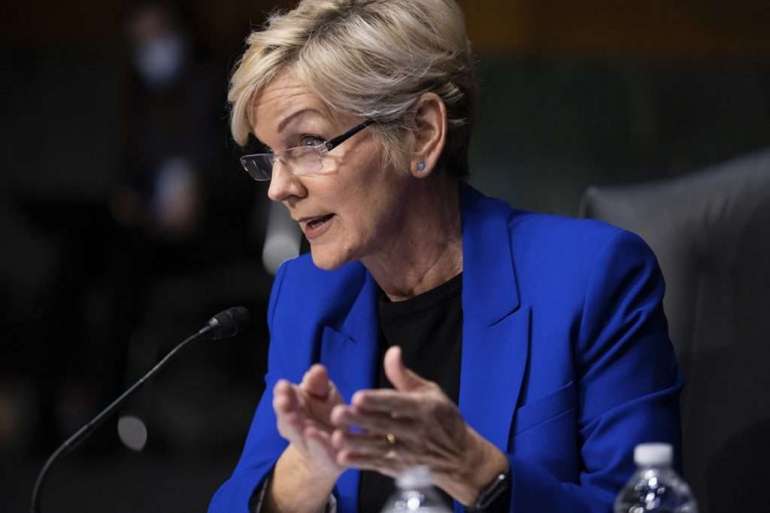Biden may tap strategic reserve amid rising fuel prices, Granholm says

She also warned that home heating prices will be more expensive than the same period last year.
“Yes, this is going to happen,” Granholm said. “It will be more expensive this year than last year.”
Gas prices are the highest in years as the economy recovers from the lows of the pandemic faster than fuel-makers can ramp up their output.
Though presidents have little to no control over gas prices, Republicans are increasingly hammering Biden for the rise at the pump, sensing that inflation is a political winner for them. Granholm has taken repeated questions over the past month on what the administration can do, and has said releasing oil from the strategic reserve is a possibility.
Tapping into the Strategic Petroleum Reserve is a move typically reserved for supply disruptions, and it likely wouldn’t have a major impact on prices consumers are paying at the pump. Biden directed the Energy Department to access the Strategic Petroleum Reserve in September to prevent gas shortages and price spikes after Hurricane Ida hit the Gulf Coast.
On Sunday, Granholm noted that Biden had called on OPEC to boost its output, an idea that the consortium of oil-producing countries has rebuffed.
“The president is all over this. Of course, every president is frustrated because they can’t control the price of gasoline, because it’s a global market,” she said.
“You can call upon increased supply, which he has done,” Granholm added. “And OPEC is, unfortunately, controlling the agenda with respect to oil prices. OPEC is a cartel and it controls over 50 percent of the supply of gasoline.”
The supply chain woes that have helped push fuel prices higher, Granholm said, underscore the need to transition to renewable energy sources. She plugged clean energy investments that are part of the bipartisan infrastructure legislation headed to Biden’s desk and a separate $1.75 trillion Democratic social spending package that has yet to be approved.
“Let us get off of the volatility associated with fossil fuels and associated with others who don’t have our country’s interests at heart and invest in moving to clean energy, where we will not have this problem. And that’s so much of what these two bills are focused on,” she said.